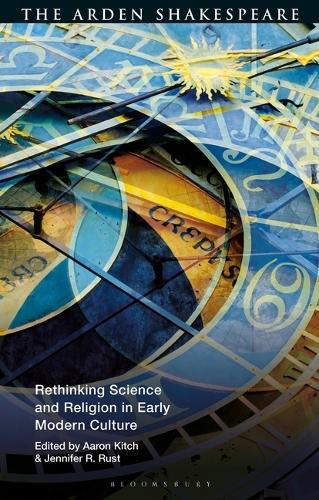
Rethinking Science and Religion in Early Modern Culture
(Hardback)
Publishing Details
Rethinking Science and Religion in Early Modern Culture
By (Author) Aaron Kitch
Edited by Jennifer R. Rust
Bloomsbury Publishing PLC
The Arden Shakespeare
8th January 2026
United Kingdom
Classifications
Professional and Scholarly
Non Fiction
Physical Properties
Hardback
256
Width 138mm, Height 216mm
Description
Early modern Europe provides a rich context from which to challenge the rigid opposition between science and religion in this bold new edited collection. Contributors reveal how modes of science or natural philosophy, and religion, were mutually interdependent, even if they were also fluid and contested. Essays break new ground by situating texts and artefacts of early modern science and religion in terms of contemporary scholarly developments, including ecocriticism, postcolonial, race and affect studies. By foregrounding questions of gender, embodiment, evidence and the historical formation of scientific colonialism, this collection locates the early modern body and its empirical study as a source of both religious and scientific knowledge.
Essays cover the soteriological body at the heart of Andreas Vesalius seminal studies of anatomy, depictions of the hymen in Shakespeare and medical texts and forms of empiricism in John Donne. Where some of the essays address non-literary works, many chapters explore the role of imaginative literature and aesthetics more broadly. Beyond the centrality of Protestant Christianity to early modern European science, some contributors consider the influence of hermetic writings on Francis Bacon and read the Mayan Kiche epic of creation known as the Popul Wuj alongside Miltons Paradise Lost. These inquiries demonstrate the value of comparative perspectives in a period in which radical social, political and religious changes caused a series of epistemic ruptures.
Author Bio
Aaron Kitch is an Associate Professor in the Department of English at Bowdoin College, USA.
Jennifer R. Rust is an Associate Professor in the Department of English at Saint Louis University, USA.
